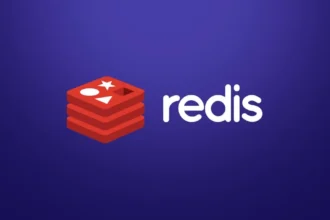
.NET is a technology you can’t ignore while planning to develop a web application or a website. Although it is an old technology, it is the most powerful to date for developing robust and secure web applications. It offers all the features and functionality that help .NET developers create applications with high user experience. It offers two frameworks, i.e., .NET Core and .NET framework, but some differences set them apart.
If you want to find the difference between .NET Core and .NET Framework, this article will help you understand the clear difference.
Before diving deep into the blog, let’s start with the basics.
What is the .NET Framework?
To understand the .NET Framework, first, we need to understand .NET- a developer platform comprised of tools, programming languages, and libraries for developing various applications for platforms such as Linux, macOS, Windows, iOS, Android, and others.
So, the .NET Framework belongs to the .NET Platform and supports running Windows-based websites, web services, desktop apps, and others.
The key functionality of the .NET Framework is to support developers for .NET app development and make software applications run on different OS using different implementations. .NET framework is primarily used to run .NET applications on Windows.
#1. .NET Framework Pros
Since its launch in 2002, the .NET framework has been one of the most popular choices of developers globally. It can be used to develop web, mobile, and desktop applications, making it advantageous. Its pros are:
- Strong Library: it offers an extensive library of pre-built components and APIs that make developers work easily to break complex tasks into simple ones.
- Supports Multiple Programming Languages: it supports more than 60 programming languages, including 11 languages developed by Microsoft.
- Security: It comes with multiple in-built security features that save apps from threats such as SQL Injection and others.
- A Strong Community: it has a strong community of experienced developers from Microsoft and other companies for sharing resources and discussing technical issues to solve.
- Flexibility and Smooth Maintenance: One of the best advantages of the .NET Framework is its flexibility and easy maintenance, which makes it a perfect choice for any ASP.NET Development Company to build .NET apps.
#2. .NET Framework Cons
There are some cons also associated with .NET framework, which are:
- Only Supports Windows: the first limitation of the .NET Framework is it supports Windows-based apps, websites, and web services.
- Slow Performance: if we look at .NET Framework vs .NET Core, the performance of .NET Framework is low as it depends on the JIT Compiler.
- Vendor Lock-In: It is completely controlled By Microsoft, so developers have no control if any changes happen at the infra or architecture level. They are bound to accept and code accordingly.
- Less Compatible: If you want to migrate your application based on an older .NET framework version to a newer version, a compatibility issue will arise.
- Unsuitable For Cross-Platform Development: it works only for Windows-based app development, so you can’t even think about cross-platform app development using the .NET framework.
What is .NET Core?
Looking for cross-platform development using .NET? .NET Core is your solution; the newest version of .NET Framework allows developers to create cross-platform applications that run seamlessly across platforms such as Windows, macOS, and Linux. It is built from scratch, making it a lightweight, modular, and suitable cross-platform framework. Its latest version is .NET 7, and the first version was launched in 2019.
Another good thing about .NET Core is it is free and open source, so any developer can access it to develop universal applications. It is modular and allows developers to choose the components they need to build a fully functional app.
#1. .NET Core Pros
Including the cross-platform development, there are other advantages also associated with .NET Core, which are:
- Supports Cross-Platform Development: it is an ultimate choice for cross-platform app development that a .NET Development services can leverage for development apps.
- Open–Source Platform: One of the top advantages that makes .NET Core different in terms of .NET Core vs .NET Framework. Everyone can use the source code and contribute to it. It can be integrated into other open-source technologies also.
- Flexibility: its flexibility makes it superb for developing desired and lightweight applications that execute fast. A .NET developer can easily use the components on a need basis.
- Supports Microservice Architecture: .NET Core supports microservices architecture that allows developers to break down the applications into smaller services that can be created, separated, and launched.
- Cloud Ready: if you are looking to develop cloud–based applications, then consider .NET Core as the best option to do so. It offers built-in support for deploying cloud applications.
- Cost-Effectiveness: There is no cost involved in using .NET Core for app development, which makes it accessible to all.
#2. .NET Core Cons
Here are some limitations with .NET Core.
- Limits With Library Support: some libraries exist that ASP.NET Core Framework does not support. So, if a developer wants to access and use it, they must use a different framework.
- Compatibility Issues: It has compatibility issues with older platforms, and migration from .NET Framework to .NET Core is very tough. In terms of support for the older platform, there is limited support from .NET Core; instead of it, you can use the full.NET framework.
- Smaller Community Size: Its community size is less compared to the .NET Framework, which is a little disadvantage with .NET Core.
- Learning Curve: it is a new framework, so the learning curve is slow with .NET Core compared to the .NET Framework.
Now you have an idea of what makes the difference between .NET Core vs .NET Framework. Still, if you want to know more about the difference between .NET Core and ASP.NET Framework, let’s move to the next section of this blog.
A Comparison Between .NET Core vs. .NET Framework
Here are the differences between .NET Core and .NET Framework that make them different from each other.
Differences | .NET Framework | .NET Core |
Platform Compatibility | Windows | Cross-Platform |
Open Source | No | Yes |
APP Models | Allows deploy apps only at the Internet Information Center | Web Apps, Windows Mobile Apps, Windows Store Apps |
Performance | Low | High |
Scalability | Low | High |
Installation | Single Package | Requires development modules, standard features, and NuGet packages. |
Deployment Model | CoreCLR facilitates the use of libraries on a a need basis | More flexible compared to the .NET Framework. |
Security | Code Access Security Feature | Offers multiple security features |
Library Collection | Built-in class libraries that support basic functions | CoreCLR facilitates the use of libraries on a need basis |
Mobile App Development | Not Supported | Supports Xamarin for Mobile App Development |
Microservices | Not Supported | Yes |
CLI | Heavy Command Line Interface | Lightweight Command Line Interface |
WCF Services Support | Yes | No |
Rest APIs | Yes | Yes |
The Final Thoughts
So now we have a clear comparison of .NET Core vs. .NET Framework. In Simple terms, on one side, the .NET Framework is a complete framework, and on the other side .NET Core is an updated version.
The thing that separates .NET Core from the framework is cross-platform and open-source capability. Using .NET Core, you can create applications for diverse platforms, but the .NET framework supports only Windows app development. It makes the ASP.NET framework the best. Still, things depend on requirements.








